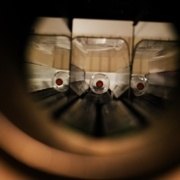What’s the deal with the Plastic Soup again?
March 15 2024 That’s what readers of news site nu.nl on their comment platform Nujij were wondering. In a recent […]
24 September 2020
People all over the world have been advised to wear face masks. Sometimes this is mandatory, like with us in public transport. By tightening the measures, the use will increase further. A downside is the kind of pollution that wasn’t there before because people massively use and throw away single-use non-medical face masks. Other corona related items such as gloves, plastic cleaning wipes (wet wipes), extra food packaging and bottles of disinfectant also worsen the plastic soup.
This new source of plastic soup can be prevented by safe reuse.
In a statement earlier this summer, UNCTAD (United Nations Conference on Trade and Development) warned that this wave of new disposable plastic poses a serious additional threat to ecosystems. The organization estimates that three-quarters of corona-related plastic ends up in open dumps and the sea. UNCTAD refers to a study by the Indian-American consulting firm Grand View Research, which shows that global sales of disposable face masks have increased unprecedentedly from $800 million in 2019 to $166 billion this year.
There is a simple alternative to the single-use disposable face masks for non-medical use. A textile face mask, whether or not homemade, can be washed with hot water and reused. More than a hundred scientists made a statement last June about the safe reuse of various plastic objects, including face masks.
As long as the pandemic lasts, it is, of course, important that people wear face masks to prevent the spread of the virus. However, much more information is needed about the safe reuse of non-medical face masks and the harmful effects of disposable face masks in the environment.
Photo: Oral mask washed ashore on the beach of Vlieland.
March 15 2024 That’s what readers of news site nu.nl on their comment platform Nujij were wondering. In a recent […]
The first Impact Fair is Europe’s largest Impact Experience. An interactive ‘immersive’ experience of impactful examples.
The waste-export to countries outside of the EU has been restricted The Netherlands is against a carpet ban on shipping of plastic waste.
The waste-export to countries outside of the EU has been restricted The Netherlands is against a carpet ban on shipping of plastic waste.

 Beverage industry advocates the introduction of deposits in the European Un...
Beverage industry advocates the introduction of deposits in the European Un...